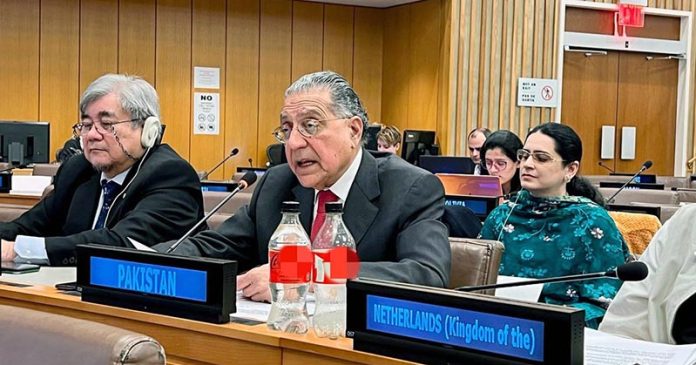UNITED NATIONS, Mar 20 (Alliance News): Pakistan has underscored the critical importance of accelerating progress towards sustainable energy goals at a meeting of a UN-based panel on the subject.
In his closing remarks at the meeting of ‘Group of Friends for Sustainable Energy,’ Ambassador Munir Akram also said that concessional climate financing was critical for developing countries’ transition away from fossil fuels.
“Without concessional finance, developing countries would not be able to achieve the targets that have been set,”the Pakistani envoy said.
“Energy lies at the heart of both the 2030 Agenda and our climate goals,” he added.
Stressing the central role of energy in both the 2030 Agenda for Sustainable Development and global climate objectives, Ambassador Akram emphasized the pressing need for a just, orderly, and equitable energy transition.
Noting the scale of the challenge ahead, the Pakistani envoy said an additional 1000 GW of renewable power annually was needed to meet the 1.5-degree Celsius temperature target.
He stressed the importance of promoting cleaner power generation solutions, enhancing energy efficiency, and transforming energy infrastructure across sectors.
With the current Nationally Determined Contributions (NDCs) falling short of necessary emissions reductions, he said the transition to sustainable energy requires substantial financing, pointing to the ‘staggering’ investment needs, including an estimated USD 150 trillion in transition technologies and infrastructure by 2050.
He underscored the need to address barriers to accessing private finance, particularly in developing countries where capacity, regulatory frameworks, and investment certainty remain challenges.
Proposing a comprehensive solution, Ambassador Akram outlined a public-private entity under the auspices of the United Nations to coordinate sustainable infrastructure investment. This entity would convene stakeholders, formulate comprehensive plans, promote internationally accepted frameworks, and assist in project identification and preparation.
Reaffirming Pakistan’s commitment to advancing this proposal, he called for support from the international community.
In this context, he announced plans for further elaboration through a second meeting of the Group of Friends of Sustainable Infrastructure Investment, co-chaired by Pakistan and South Africa.
In conclusion , Ambassador Akram called on collective action to scale up investment in sustainable infrastructure and drive the global energy transition forward.


